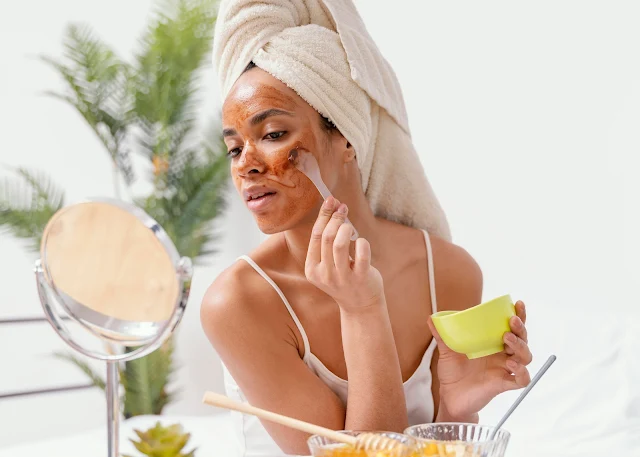
Diy Organic Skin Care Recipes
In today's wellness-conscious era, the pursuit of radiant, healthy skin has led many to explore the realm of DIY organic skincare. Embracing natural ingredients, DIY organic skincare recipes have gained immense popularity due to their efficacy and non-toxic nature. This article delves into the world of DIY organic skincare, offering insights, recipes, and valuable tips for achieving glowing, healthy skin using simple, natural ingredients found in every kitchen.
Importance of Organic Skin Care
Organic skincare emphasizes using natural, chemical-free ingredients, steering clear of harmful toxins found in conventional products. It helps maintain skin health by nourishing it with vitamins, antioxidants, and minerals, promoting a vibrant complexion while being gentle and harmonious with the skin's natural balance.
Benefits of DIY Organic Skin Care Recipes
Creating your skincare products allows customization to suit individual skin needs, ensuring purity and freshness of ingredients. DIY recipes enable control over formulations, guaranteeing a personalized, effective, and cost-efficient skincare routine.
Natural Ingredients for Skin Care
Utilizing natural ingredients such as honey, aloe vera, coconut oil, and shea butter, among others, forms the cornerstone of DIY organic skincare. These ingredients possess inherent healing properties, addressing various skin concerns without the use of harsh chemicals.
Essential Oils for Skin Care
Essential oils like lavender, tea tree, and rosehip oil offer potent benefits in skincare, addressing issues like acne, inflammation, and aging. Diluted and used judiciously, these oils complement DIY recipes effectively.
Understanding Organic Skin Care
Exploring the significance of organic skincare involves understanding labels, certifications, and the impact of chemicals on the skin. This section elucidates the importance of choosing genuinely organic products for optimal skin health.
You May Also Like To Read About Homemade Jewelry Cleaner: Gold and Diamonds’ Best Friend
DIY Recipes for Cleansing
Effective cleansing is pivotal in skincare routines. Natural DIY cleansers using ingredients like honey, oats, or yogurt gently purify the skin without stripping its natural oils.
DIY Recipes for Moisturizing
Hydration is key to supple, healthy skin. DIY moisturizers incorporating ingredients like avocado, jojoba oil, or shea butter nourish the skin deeply, locking in moisture.
DIY Recipes for Exfoliation
Gentle exfoliation is essential to remove dead skin cells. DIY exfoliants with ingredients like sugar, coffee grounds, or oatmeal rejuvenate the skin, revealing a smoother complexion.
DIY Recipes for Sun Protection
Natural sunscreens made with ingredients like zinc oxide, coconut oil, or shea butter provide adequate protection against harmful UV rays without the toxins often found in commercial products.
DIY Face Masks
Facial masks are a treat for the skin. DIY face masks with ingredients such as clay, fruits, or yogurt address specific skin concerns, offering an indulgent spa-like experience at home.
DIY Toners and Serums
Toners and serums play a crucial role in skincare routines. DIY versions using witch hazel, green tea, or rose water balance the skin's pH and provide targeted nourishment.
DIY Lip Care
Lips require special attention. DIY lip balms with beeswax, cocoa butter, or almond oil ensure soft, hydrated lips, especially during harsh weather conditions.
Tips for DIY Organic Skin Care
This section offers practical tips and tricks for successful DIY skincare, including storage advice, batch preparation, and understanding shelf life to maximize efficacy.
Safety Measures for DIY Skin Care
While DIY skincare is beneficial, safety is paramount. This section outlines essential precautions to prevent adverse reactions and maintain skin health.
Precautions for Allergic Reactions
Understanding allergies and performing patch tests before using any ingredient can prevent allergic reactions, ensuring a safe DIY skincare journey.
You May Also Like To Read About Natural Floor Cleaners
Diy Organic Skin Care Recipes - FAQs
Diy Organic Skin Care Recipes - Conclusion
Exploring the realm of DIY organic skincare opens doors to a personalized, holistic approach to maintaining healthy, radiant skin. With the right ingredients, knowledge, and precautions, embarking on this journey promises a rewarding and nourishing experience for skin health and well-being.
You May Also Like To Read About Homemade Cleaners
Also Our About-Us page was created with the help of the Free About Us Page Generator Tool